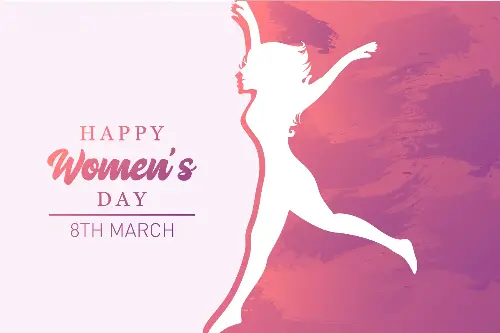In the tapestry of modern observances, there are few which carry the blend of passion, history, and advocacy found in International Women's Day. Celebrated globally on March 8th, the day honours the numerous achievements of women throughout history, highlighting the crucial battles fought by tenacious pioneers who demanded gender parity and equal rights.

The roots of this commemoration are deeply embedded in the turbulent soil of the early 20th century. The initial International Women's Day was marked in 1911, inspired by the political activities of labour movements in North America and Europe, particularly the 1908 garment workers' strike in New York, where women protested against inhumane working conditions. A key figure, Clara Zetkin, leader of the 'Women's Office' for the Social Democratic Party in Germany, proposed the idea of an International Women's Day during the Second International Conference of Working Women in 1910. Her recommendation was met with unanimous approval and marked the launch of the day's observance.
This day was first celebrated in Austria, Denmark, Germany, and Switzerland on March 19, 1911, with rallies advocating for women’s rights to work, vote, be trained, hold public office, and end discrimination. Although the date has shifted, the ethos of those early gatherings has endured.
The Political and Social Undertones
International Women's Day has continued to embody the political and social aspirations of women across the globe. Notably, on March 8th, 1917, female textile workers in Russia went on strike for 'Bread and Peace', catalysing events that led to the abdication of the Czar and consequentially, the granting of women's suffrage in Russia. This historic strike is why International Women's Day is celebrated on March 8th today.
Over the decades, International Women's Day has mutated from its socialist roots into a global day of recognition and celebration crossing national, ethnic, linguistic, cultural, political, and economic lines. The day aims to highlight the struggle for women's rights and to support the ongoing battle against gender inequality and abuse.

The United Nations' Involvement
The formal involvement of the United Nations (UN) in International Women's Day celebrations began in 1975, during International Women's Year. In 1977, the United Nations General Assembly invited member states to proclaim March 8th as the UN Day for women's rights and world peace. This step was a potent affirmation and an amplification that permeated the international consciousness with even greater intensity.
Themes and Celebrations Today
Each year, International Women's Day is marked with a specific theme that reflects contemporary challenges and goals. For instance, recent themes have focused on gender parity, climate justice for women, and technology-based educational opportunities. The day is also an occasion for looking at advancements in women’s rights and the critical role of women in different sectors, celebrating achievements in science, politics, sports, and the arts.
Across the world, the day is observed through marches, conferences, workshops, and cultural events. While many countries celebrate the victories won for women's rights, it’s also a day to push for continued progress. In some nations, International Women's Day is akin to the combination of Mother's Day and Valentine's Day, where women are presented with flowers and gifts. In contrast, other countries focus more on protest and political activism.

The Broader Impact
Beyond a single day of observance, International Women's Day has engendered sister movements and introduced enduring initiatives and organisations dedicated to women's advancement. Notably, the day serves as a focal point for fundraising for women-centric charities and as a springboard for year-round activism and awareness campaigns.
Moreover, the global nature of International Women's Day reminds us that the journey towards gender equality is universal, yet experienced differently across the world. It sheds light on the fact that while some progress has been made, the journey towards true equality still confronts formidable barriers in many societies, whether it's unequal pay, underrepresentation in power structures, or the scourge of gender-based violence.
Unveiling the historical roots and global impact of International Women's Day isn’t just a chronicle of past struggles and triumphs. It’s an invitation to all, irrespective of gender, to participate in the narrative of equality. It's a call to action that beckons each of us to contribute actively to the creation of a fair and just society. As we commemorate this day, we continue writing the story of human rights and gender equality, realising that every step, from the smallest local event to the most ubiquitous of international movements, is a stitch in the fabric of a more equitable world for all.
